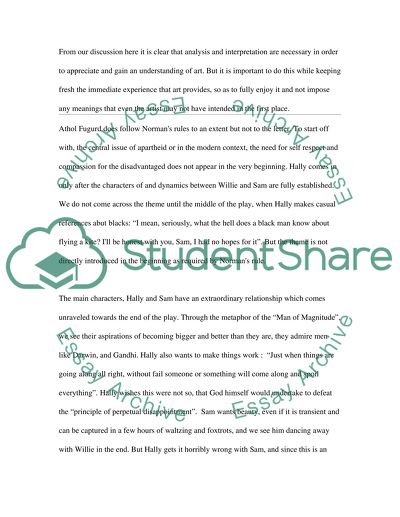Cite this document
(Interpretation and Criticism: the Immediacy of Experience Assignment, n.d.)
Interpretation and Criticism: the Immediacy of Experience Assignment. https://studentshare.org/sociology/1513296-interpretation-and-criticism
Interpretation and Criticism: the Immediacy of Experience Assignment. https://studentshare.org/sociology/1513296-interpretation-and-criticism
(Interpretation and Criticism: The Immediacy of Experience Assignment)
Interpretation and Criticism: The Immediacy of Experience Assignment. https://studentshare.org/sociology/1513296-interpretation-and-criticism.
Interpretation and Criticism: The Immediacy of Experience Assignment. https://studentshare.org/sociology/1513296-interpretation-and-criticism.
“Interpretation and Criticism: The Immediacy of Experience Assignment”. https://studentshare.org/sociology/1513296-interpretation-and-criticism.


